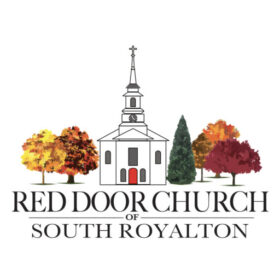One frequently asked question up here in South Royalton, VT (just a couple of miles from where Joseph Smith was born) is this: “Are the Mormons Christians?”
A quick glance would give one the impression that they certainly are. They basically live like Christians, talk like Christians and go to “church” like Christians. So they must be Christians, right?
In this post I want to quickly explore that question. What I hope we will see is that using Christian terminology does not make you Christian.
“A Deep Commitment to Jesus Christ”
Not only do the LDS folks appear on the surface to be christian, more and more today the LDS Church actively seeks to paint themselves into the canvas of mainstream, Orthodox Christianity–they want people to think of them as Christians.
Using ad campaigns like the very well done “I’m a Mormon” series, Mormons display themselves as a diverse, global group of people that share a “deep commitment to Jesus Christ.” If you go to one of their official websites like Mormon.org, you will find everywhere statements like this one:
“Mormons, for all the other things that set us apart, believe first and foremost that Jesus Christ is our Savior and Redeemer.” 1
In another place on Mormon.org we read:
“We are Christians in a very real sense and that is coming to be more and more widely recognized. Once upon a time people everywhere said we are not Christians. They have come to recognize that we are, and that we have a very vital and dynamic religion based on the teachings of Jesus Christ.”
When Mormons come to your door it is not uncommon to hear them ask, “Would you like to hear a message about Jesus Christ?”
All of this sure sounds like Christianity.
More Than Meets the Eye
But there’s more here. Calling yourself a Christian does not make you a Christian. Even talking, acting, and living like a Christian does not make you a Christian. I can walk around in the halls of the local hospital wearing scrubs and spouting off phrases like “let me see the EKG from that MRI X-ray,” giving some the impression that I was a doctor. But to those with some level of medical training, they would know immediately that it was nonsense; that the guy who looked like a doctor was an imposter.
Interestingly, in its early days, Mormonism sought to distance itself from mainstream Christianity because they believed that all Christians were apostate (had abandoned the true religion). As the quote above states, “Once upon a time people everywhere said we are not Christians.” The only thing the folks over at Mormon.org forgot to mention was that Mormons themselves used to say as much!
Today, despite their efforts to appear Christian, the LDS Church still believes the Christian Church to be apostate. In the words of Tim Staples, the director of apologetics and evangelization at Catholic Answers:
“Mormon[s]… claim that the Church fell into total and complete apostasy after the death of the last apostle. Moreover, Mormons maintain that biblical texts like Amos 8:11-14 and 2 Thessalonians 2:1-4 (which we will examine below), among others, positively teach this to be so. Thus, the LDS contends that the true church of Christ did not exist at all for some 1,800 years and then was re-established through another testament given to Joseph Smith and the Church of Jesus Christ of Latter-day Saints.” 2
The “true church” then is the one founded by the LDS Church’s first President, Joseph Smith Jr. according to current Mormon teaching.
If that’s the case then, when Mormons call themselves “Christians”, they must mean something very different from what the Christian Church means. So we should be extremely skeptical when we hear a Mormon (or anyone else) suggest that they are “Christians” in the same sense as the Christian Church. When you hear this next time, maybe you could say, “But doesn’t the LDS Church teach that the Christian Church is apostate and that it was literally absent from the earth for nearly 1800 years?”
Other Differences in Terminology
Mormons today not only use the word “Christian” in ways that differ from historic, bible-believing Christians, they use a truck-load of other Christian terminology in ways that mainstream Christians (should) disagree with. Here are a few examples given by Ankerberg, Weldon, and Burroughs in their very helpful little book The Facts on the Mormon Church:
God: “Elohim”; one of innumerable self-progressing bodily deities; formerly a man, a finite creature; now the principal deity of the earth. In early Mormon theology, Adam (of the garden of Eden) was considered the true earth deity by many Mormons.
Jesus Christ: a self-progressing deity (“Jehovah” of the Old Testament) and the first spirit child of “Elohim” and his wife.
The Gospel: Mormon salvation by works, leading to exaltation or godhood.
Born-again: having undergone water baptism into Mormonism.
Virgin-birth: the birth of Christ through a physical sex act between God the Father (the Mormon earth god “Elohim”) and Mary (hence, not a virgin birth). 3
Just the few terms above reveal that Mormon theology is drastically different from Christian theology. Joel Miller helpfully points out how Mormon the mormon definition of God won’t even get us past the first section of the Nicene Creed, a “bedrock statement of accepted Christian teaching.”
The Creed states: “I believe in one God the Father Almighty, Maker of Heaven and earth, and of all things visible and invisible.”
In Miller’s words:
“We’re already off to a rough start. If God is the maker of all things, he cannot have been made himself, yet Mormons teach exactly that: God the Father was once a man, just like you or me (Brigham Young, Journal of Discourses 7.334). And he still has a physical body; as it says in Doctrine and Covenants, ‘The Father has a body of flesh and bones as tangible as man’s’ (130.22).” 4
Being aware of these crucial differences will help you engage your Mormon neighbors when they come to your door or you see them in the community. Drawing out the differences in terminology we can bring the reality clearly into the light that their teachings are far different from the historic Christian Church.
Conclusion
While there is a great deal more we could say about this, the sum total of the few paragraphs above is that despite what the LDS Church claims, they cannot be considered Christians in the way that the historic Christian Church defines the term. Despite appearances, their God is different, their gospel is different, their new birth is different.
By their own lights, they can no more be considered Christian than Christians can be considered Mormons.
- Located at http://www.mormon.org/about-us. ↵
- Article found here http://www.catholic.com/magazine/articles/latter-day-saints-and-the-great-apostasy. Accessed on 7/12/15. ↵
- John Ankerberg, John Weldon & Dillon Burroughs, “The Facts on The Mormon Church,” (Eugene: Harvest House Publishers, 2009), 16-18. ↵
- See http://www.patheos.com/blogs/joeljmiller/2011/10/why-mormons-arent-christians/. Accessed on 7/14/15. ↵


